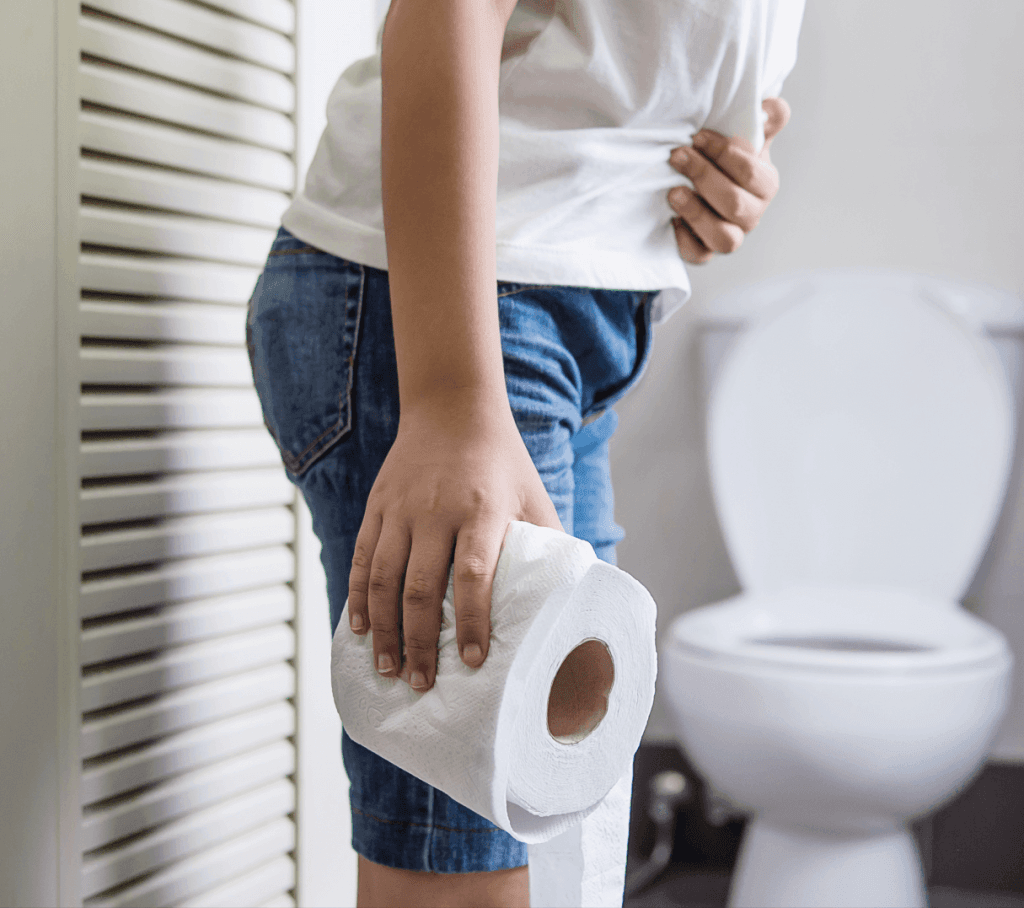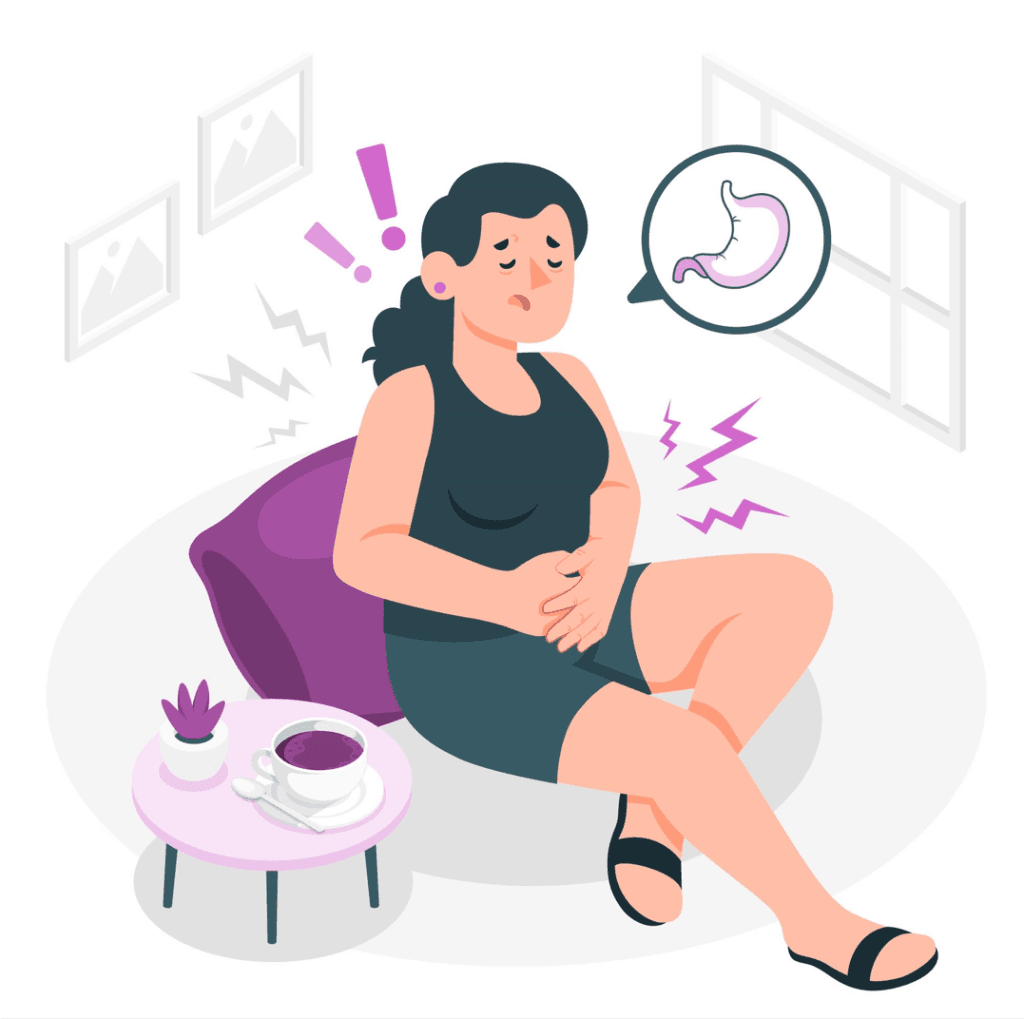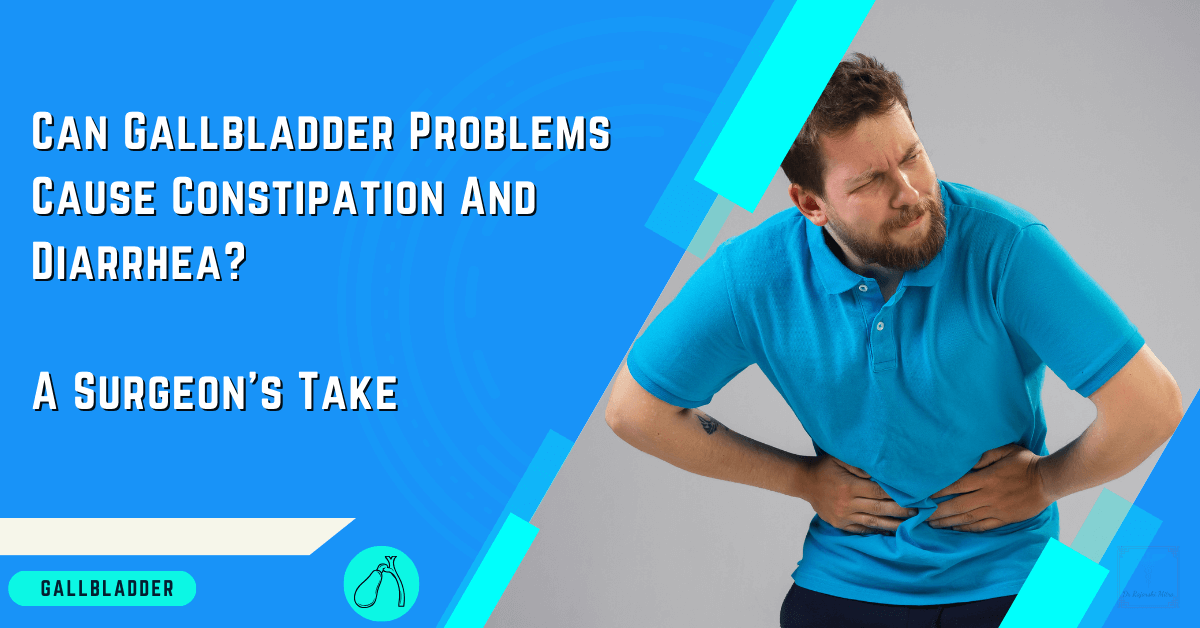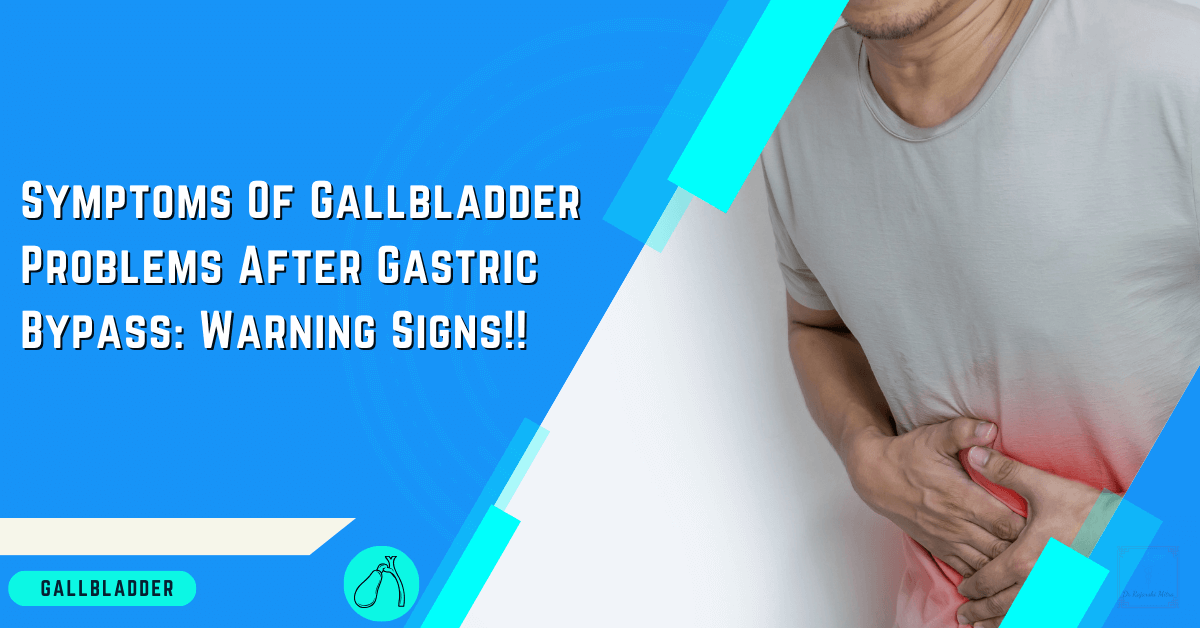Right underneath your liver, there’s a tiny but mighty organ. It’s called the gallbladder. And it supports digestion by storing and releasing bile to break down fats in your diet. But just like with any other organ, the gallbladder, too, may not work properly – and cause digestive distress. But, can gallbladder problems cause constipation, diarrhea, and other stomach issues?
Gallbladder disease may lead to constipation and diarrhea. Conditions like excess bile in the small intestine, inflammation of the gallbladder, etc., can result in diarrhea.
On the other hand, inefficient fat processing by bile or gallstones obstructing bowel movement can lead to constipation.
A dysfunctional gallbladder can also cause other symptoms and side effects like intermittent pain, nausea and vomiting, and more. Do you want to know how the gallbladder affects your digestive system? Dive in to know more!
Gallbladder Problems Cause Constipation And Diarrhea – Highlights
- Digestive Impact: A dysfunctional gallbladder may cause constipation and diarrhea, affecting digestion and leading to discomfort.
- Constipation Causes: Gallbladder diseases like gallstones, biliary dyskinesia, and slow transit constipation can contribute to constipation issues.
- Diarrhea Causes: Chronic gallbladder disease and gallbladder polyps can lead to chronic diarrhea, impacting bowel movements.
- Post-Surgery Effects: Gallbladder removal surgery can result in temporary diarrhea due to changes in bile storage, and short-term constipation post-surgery is often related to surgical and anesthetic factors.
- Diagnosis and Treatment: Identifying gallbladder conditions involves medical history analysis, physical tests, and imaging procedures. Surgical removal, often through laparoscopy, is a common treatment.

Gallbladder Issues And Constipation
Are you experiencing difficulty and pain while passing stool? You’re not alone! 16% of the population suffers from constipation, the most common digestive condition.
There are many reasons behind constipation. But did you know that gallbladder diseases might be to blame?
The gallbladder stores part of the bile produced by the liver. And it releases this bile through the bile ducts to promote fat digestion.
So, when the gallbladder fails to function properly, it does not release sufficient bile. This results in undigested food, leading to constipation. Gallbladder diseases that impair bile secretion include the following:
- GallstonesGallbladder stones may lead to cholecystitis or inflammation of the gallbladder. A form of this condition is acalculous gallbladder disease. Gallstones also lead to the rare condition of gastrointestinal obstruction known as gallstone ileus.
- Biliary DyskinesiaThis is a functional disorder that prevents gallbladder contraction. It hinders the efficient ejection of bile. It also causes biliary colic, a sharp abdominal pain in the upper right region.
- Slow Transit ConstipationPeople with this condition have a condition in which the bowels don’t respond efficiently to some signals given by the nervous system. As a result, there is an improper movement of the gut.
- Psychological DisorderConstipation can be a somatic response to anxiety. Patients with gallbladder issues and associated gastrointestinal problems may face psychological distress, indirectly leading to constipation.
If you have constipation, you must consult your doctor. Prolonged constipation can eventually result in other problems like anal fissures, hemorrhoids, and more.
Gallbladder Issues And Diarrhea
Are you suffering from loose or watery bowel movements? You belong to the 6.6% of the US population suffering from chronic diarrhea. And gallbladder dysfunctions might have an unexplained impact on digestion.
Let’s take a look at the various causes:
- Chronic Gallbladder DiseaseMild inflammation, i.e., cholecystitis, as well as gallstones, can scar the gallbladder and make it stiff. Repeated gallstone attacks can make this situation worse. That’s because it results in chronic gallbladder disease – and you will experience chronic diarrhea, along with discomfort in the abdomen.
- Gallbladder PolypsPolyps are projections that may grow in the gallbladder. Now, the interesting thing about gallbladder polyps is that they usually don’t present noticeable symptoms – unless you have other diseases in the organ. Then, your gallbladder may lead to pain in the upper abdomen – along with changes in bowel movements, including diarrhea.
If you don’t consult a doctor in time and get treated for diarrhea, you may experience gallbladder infection, hemorrhoids/piles, fissures, and more.
Impact Of Gallbladder Surgery On Diarrhea And Constipation
Quite often, the only solution to a gallbladder condition is cholecystectomy or removal of the gallbladder.
Gallbladder surgery is expected to fix various stomach problems along with symptoms. However, you should know that you may experience a temporary surge in some symptoms.
Can gallbladder removal surgery cause diarrhea?
Yes, diarrhea after removing the gallbladder is common. Bile is no longer stored in the organ, disrupting the usual process of digesting food.
Plus, bile acids may not be absorbed into the bloodstream due to a condition called Bile Acid Malabsorption. Both can lead to diarrhea. But this is usually temporary.
Can gallbladder removal cause constipation?
Removing the gallbladder may be followed by constipation. But it is usually not due to the change in functions of the digestive system or physiological changes. Instead, constipation after gallbladder removal is often linked to the dietary adjustments and lifestyle changes that individuals make during their recovery. The shift towards a low-fat diet, commonly recommended post-surgery, can impact bowel movements. Additionally, dehydration and reduced physical activity during the healing process are also significant factors leading to gallbladder removal that may contribute to this issue.
Surgery and anesthesia are usually the reason behind short-term constipation.

Diagnosis Of Gallbladder Conditions
Besides digestive issues, you may experience other signs and symptoms of gallbladder disease. A common symptom is pain that can radiate to the upper back area. Other symptoms include nausea and vomiting, fever and chills, bloating, jaundice and yellowness of the skin, etc.
When you notice such symptoms of gallstones and gallbladder conditions, your doctors will analyze your medical history and symptoms. Then, after a physical test, you may have to undergo diagnostic tests to identify the gallbladder’s function problems.
Tests include bloodwork, lab tests, and imaging tests like ultrasound, CT scan, MRI, ERCP, and cholescintigraphy. These tests can help identify anything from an infection of the gallbladder to gallbladder stones and gallbladder cancer.
Final Note From Dr. Rajarshi Mitra
Once your doctor is sure that the discomfort you’re experiencing is due to gallbladder disorders, your doctor may prescribe a surgical removal of the gallbladder. In most cases, doctors prefer a laparoscopy surgical procedure as it is minimally invasive.
Medical management, along with dietary and lifestyle, may work – but usually, if you are asymptomatic, especially in the case of gallstones.

















